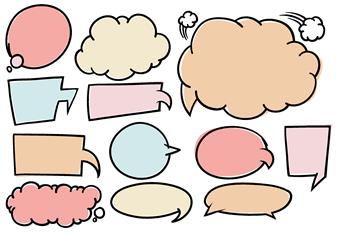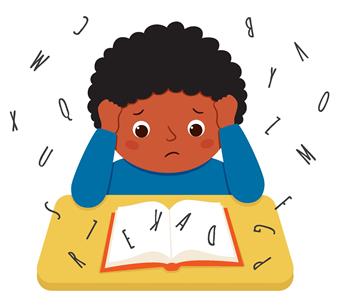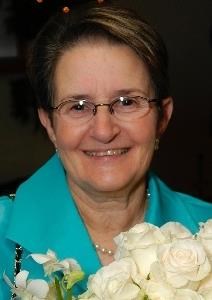NJ Teachers of English to Speakers of Other Languages/
NJ Bilingual Educators
ARTICLES: Winter 2023
A Student’s Success
and
How to Support the Social and Emotional Health of Middle/High School ELLs– Michelle Lawrence
2023 Scholarships and Awards for Your Students and for You!
and
A 2022 Award Winner’s Essay
5 Apps to Build English Vocabulary and Learn How to Use New Words in Speech– Mihir Patkar
and
How to Pre-Teach Vocabulary to English Language Learners– Beri Mcclymont
The ‘Science of Reading’ and English-Language Learners: What the Research Says– Sara Schwartz
and
What the ‘Science of Reading’ Should Look Like for English-Learners. It’s Not Settled.– Sara Schwartz
A Superpower Hidden in Plain Sight– Adeola Whitney
and
Why Culture Matters when Teaching English Learners– Kate Fritz
Senegalese Teranga– Fatoumata Diop
and
4 Ways to Celebrate Cultural Identities All Year– Hedreich Nichols
The Conundrum of ChatGPT– Marilyn Pongracz
and
Managing and Using ChatGPT in the Classroom– Larry Ferlazzo
8 Strategies to Build Confidence in ESL Students– Linda D’Argenio
and
10 Fun Ways to Use Realia in Your ESL Classroom– Camille Turner
Elizaveta Melchakova, A 2002 Eighth Grade Award Winner’s Essay
and
Awards & Scholarships for Your Students & for You!
NJTESOL/NJBE Member of the Month: Miriam Klein– Kathleen Fernandez
and
When Students Become Teachers– Miriam B. Klein
Joselin Mejia, A 2022 Pedro J. Rodriguez High School Scholarship Winner’s Essay– Joselin Mejia
and
Serving ELL Students and Families
January 3, 2023
A Student’s Success
Youstina Salib is a peer tutor hired to help students taking ESL classes at Bergen Community College. She wrote this autobiography for the English Language Resource Center (ELRC) fall newsletter to be shared with the faculty who teach composition and ESL classes.
 Hello! My name is Youstina Salib. This is my third semester and second year at BCC. I’m majoring in biology, but when I transfer, I’m planning on changing my major to neuroscience since I find the brain and the way it functions really interesting! I am from Cairo, Egypt. I have been in the United States for almost 5 years now.
Hello! My name is Youstina Salib. This is my third semester and second year at BCC. I’m majoring in biology, but when I transfer, I’m planning on changing my major to neuroscience since I find the brain and the way it functions really interesting! I am from Cairo, Egypt. I have been in the United States for almost 5 years now.
Before I moved to the United States, I only knew how to speak a few basic English sentences. When I was in high school, I had to take ESL classes. I stayed in ESL for two years before my teacher decided I didn’t need to be in ESL anymore. When I was in ESL, I felt most comfortable since I was mainly among students who could only speak as little English as me. I used to be embarrassed by my accent and the way I pronounced certain words. I didn’t like that about me, so I decided to make a change. I studied hard, translating every single word in the textbook, and even preparing for all my classes ahead of time to be able to understand the lessons better. My hard work paid off, and my language slowly started to improve over time. I graduated high school with a 3.7 GPA, and now I’m at BCC pursuing an associate’s degree in biology and helping people who have the same struggles I once had.
I love my experience in the ELRC so far. Not only does it allow me to provide people with the help they need, but it also helps me meet new people and make new friends from different backgrounds and cultures. I enjoy sharing cultural differences and asking them to teach me words and sentences in their language and seeing the excitement in my students whenever I ask them to teach me about their languages and cultures. That’s what I like the most about being a tutor in the ELRC: we all get to exchange knowledge and differences! I am looking forward to meeting new students and getting to know more about them in the spring semester!
Reprinted with the author’s permission by Marilyn Pongracz, ELRC Supervisor
How to Support the Social and Emotional Health of Middle/High School ELLs
By Michelle Lawrence
 Michelle Lawrence writes that unless the social and emotional needs of students are met, even the best teaching cannot be successful.
Michelle Lawrence writes that unless the social and emotional needs of students are met, even the best teaching cannot be successful.
The tips she presents revolve around getting to know your students by building relationships with them through informal interaction such as extra-curricular activities, lunch, and especially advisory periods. It is necessary to find out about their responsibilities apart from school such as jobs, caring for family members, cooking for their families, or being the family translator.
It is also essential to find out about their previous experiences that may have caused trauma.
The teacher’s role is to provide guidance and opportunities for completing their required assignments and letting them know that they have a listening ear and support. In addition, Lawrence emphasizes creating structure so students know what they need to do and when.
Teens also struggle with their identity: being like their American classmates while yet holding onto their own cultures. Teachers need to provide validation of the different cultures of their students. Finally, teachers can encourage their students to pursue their interests and hobbies and build on their talents.
January 10, 2024
2023 Scholarships and Awards
for Your Students and for You!
 We are pleased to announce the 2023 NJTESOL/NJBE Awards and Scholarships are now online. Please encourage your students to apply. There is also a grant for you!
We are pleased to announce the 2023 NJTESOL/NJBE Awards and Scholarships are now online. Please encourage your students to apply. There is also a grant for you!
Each application includes an essay and one or two other important documents, so be sure to start early before the deadline, March 17, 2023.
We will honor the scholarship recipients at the 2023 Spring Conference President’s Awards Ceremony which will be held 6:00 pm, May 24th, at the Hyatt in New Brunswick.
Here is the list, and you can find all of the information on our website.
- Two Fourth Grade English Writing Challenges – two English learners who have been in the U.S. 3 years or less – Award: an iPad
- Two Eighth Grade English Writing Challenges – two English learners who have been in the U.S. 3 years or less – Award: a touch screen laptop
- Two $2,000 Raquel Sinai Newcomer Scholarships – two student in ESL and/or bilingual classes in grade 12 who have been in the U.S. two years or less
- Two $2,000 Pedro J. Rodriguez Scholarships – ESL/bilingual high school seniors who plan to study in a New Jersey college
- Two $2,000 Seal of Biliteracy Scholarships – Two high school seniors who are current or former ESL/bilingual students who received the NJ Seal of Biliteracy in 2022 or will receive it in 2023.
- Praxedes León Parent Awards for $500 are given to the parents of the Seal of Biliteracy Scholarship winners
- Two $2,000 Higher Education Scholarships – Two ESL/bilingual students enrolled part-time or full-time in a NJ college – presently taking ESL courses
- $2,500 Dr. Jessie Reppy Memorial Scholarship – for a graduate student enrolled in an accredited master’s degree program with a major or specialization in teaching English to speakers of other languages
- $2,500 Bilingual Educator Scholarship – for a graduate student enrolled in an accredited program with a major or specialization in bilingual/bicultural education
- $1000 Grant from Judie Haynes for an educator who teaches English learners under difficult conditions. The grant money may be used to purchase materials or provide services.
A 2022 Award Winner’s Essay
By 4th Grade Winner, Aaron Chen
 Have you ever went to the moon and talked to aliens? That’s what it feels like to be the new student in class and didn’t speak English. What I can do to help him or her is to make friends with him or her.
Have you ever went to the moon and talked to aliens? That’s what it feels like to be the new student in class and didn’t speak English. What I can do to help him or her is to make friends with him or her.
What I can do to make friends with him or her is to play with him or her at recess. For example, I can play tag with him or her at recess. I can also try to explain to him or her what the teacher is saying. another way I can do to make friends with him or her is to play with him or her at my home. For example, I can invite him or her to my home and play Legos and video games.
In conclusion, you can do many things to help new students. I once is a new student who didn’t know a lot about English but my friends played with me, so I know the feeling when your a new student and I want to help new students in class who doesn’t know English.
January 17, 2024
5 Apps to Build English Vocabulary and Learn How to Use New Words in Speech
 By Mihir Patkar
By Mihir Patkar
Mihir Patkar describes five free apps and how students can use them to increase their vocabulary.
- VocabTube contains its own educational videos, but closed-caption videos from any source can be played in the app. Viewers can click on any word to pause the video and see a pop-up definition.
- YouGlish initially functions like a dictionary, but instead of a definition, it provides three YouTube examples of everyday use of a word. Users can also find a definition of the word, related words, and pronunciation help.
- Burning Vocabulary is a browser extension that functions with any website in which it is possible to highlight a word. Besides giving a definition and pronunciation of a word, it also saves the word to a personal dictionary. The word is then underlined if it appears in another website, and can be reviewed with built-in flashcards.
- WordUp helps students learn the most common words in English. It starts with a test from which students can decide if they know the words or not, and saves the ones they don’t know in a personal dictionary. The dictionary contains definitions, pronunciation, and examples from text and videos.
- Word of the Hour presents a new word every hour of the day. It contains definitions and translations and works on phones and computers, and has the benefit of a community of users.
In her conclusion, Mihir Patkar reminds students to practice their new vocabulary in conversation.
Here is more information and links to the apps.
How to Pre-Teach Vocabulary to
English Language Learners
By Beri Mcclymont
 Mcclymont lists eight strategies for pre-teaching vocabulary so that students can better comprehend any text and be more confident in the classroom.
Mcclymont lists eight strategies for pre-teaching vocabulary so that students can better comprehend any text and be more confident in the classroom.
- Select essential vocabulary. The length of the list depends on the text and students’ abilities, but ideally, it should consist of five or six essential words that are repeated frequently.
- Pretest. The author recommends a simple quiz, either multiple choice or matching vocabulary with pictures or definitions.
- Prepare a presentation of each word. This includes a simple definition, an image, and a sentence for context.
- Explicitly teach each word. Once the word has been presented, students can talk about it, connect it to their own experiences, create a gesture for the word, do a word study, compare cognates of the word, and relate it to the text.
- Provide many opportunities for practice. Ideally this will be in reading, writing, listening, and speaking. Sentence frames may be beneficial for this practice.
- Vocabulary maps These might include definitions, synonyms, antonyms, prefixes, suffixes, and parts of speech.
- Post-test. Repeat the pre-test so students can see what they have learned.
- Word walls Post the vocabulary for review and retention.
Mcclymont concludes that “If we want our English learners to make academic progress, we must increase their vocabulary. Pre-teaching key words from text will equip your students for a successful reading experience, increase their confidence, and help them succeed in all their academic classes.”
See examples and details here.
Thank you to Tina Kern, NJTESOL/NJBE Exhibitor Liaison, for recommending these articles.
January 24, 2024
The ‘Science of Reading’ and
English-Language Learners:
What the Research Says
By Sarah Schwartz
 The author describes the “science of reading” as a systematic method of teaching beginning readers the correspondence between letters and sounds. Studies have shown that this is the best way to help children learn to read. However, focusing only on phonics is not enough, especially for multilingual learners. Students need to be able to communicate orally, understand what is spoken, and be able to write.
The author describes the “science of reading” as a systematic method of teaching beginning readers the correspondence between letters and sounds. Studies have shown that this is the best way to help children learn to read. However, focusing only on phonics is not enough, especially for multilingual learners. Students need to be able to communicate orally, understand what is spoken, and be able to write.
While the laws in many states include “fluency, vocabulary, and text comprehension” in their mandates, there is concern that the new approach will limit programs from meeting the additional needs of multilingual learners (MLs): “vocabulary knowledge, listening comprehension, and syntax.”
Teachers must ensure that MLs understand the words they are being taught to read and the meanings of those words in context, but not limit vocabulary lessons to only the reading texts.
The author writes that it is beneficial for students to have the advantage of bilingual programs in which they learn to read their native language, but reading in both languages should be taught in ways that work best for each one.
Find more information and studies about reading here.
What the ‘Science of Reading’ Should Look Like for English-Learners.
It’s Not Settled.
By Sarah Schwartz
 In a second article published the same date as the one above, Schwartz continues the discussion about the implementation of the “Science of Reading.”
In a second article published the same date as the one above, Schwartz continues the discussion about the implementation of the “Science of Reading.”
The main issue that the NCEL has with this reading program is that it was “developed around monolingual students.” (The National Committee for Effective Literacy is comprised of teachers, researchers, and advocates for MLs.)
Children who are learning to speak the language while they are learning to read it have different strengths from monolingual learners, but they also need more practice speaking their additional language. Although schools are not supposed to only teach phonics, these lessons are often taught without sufficient context for MLs.
One suggestion for teachers to help students understand vocabulary is to emphasize cognates. To help with reading skills, the second suggestion is to work on phonemic awareness with letters that have the same sounds in both English and the students’ home languages.
In Illinois, Erika Méndez, the associate director of education for the Latino Policy Forum stated that, “Part of the issue was the narrow definition of what literacy was within the legislation,” and “The concern was that it would narrow the set of practices that teachers would have in their toolbox.” Ideally, the policies about teaching reading should ensure that they benefit all learners.
January 31, 2024
A Superpower Hidden in Plain Sight
By Adeola Whitney
 Whitney begins her article with statistics such as in Fall 2018, 10.2% of students in public schools in the United States were emergent bilinguals, and about 75% spoke Spanish.
Whitney begins her article with statistics such as in Fall 2018, 10.2% of students in public schools in the United States were emergent bilinguals, and about 75% spoke Spanish.
She discusses the importance of naming them as emergent bilinguals rather than ELLs because they should not be defined by their lack of English ability but by their cognitive and cultural strengths.
She summarizes the historic role of government efforts to eliminate languages other than English, and then explains how this causes not only a loss of language, but also diminishes students’ views of themselves.
Since students need to learn English, and the ability to read is vital, she suggests methods to adapt reading instruction such as using books with content that students can relate to. She also recommends choral reading and vocabulary building.
You can find the details here.
Why Culture Matters
When Teaching English Learners
By Kate Fritz
 Fritz dives past the surface of cultural differences and discusses what is involved in culturally responsive teaching. She writes that “Even teachers who are student-centered with instruction, create engaging learning opportunities, utilize data, and other pedagogical best practices can still miss the mark with English learners if they are not culturally competent and responsive.”
Fritz dives past the surface of cultural differences and discusses what is involved in culturally responsive teaching. She writes that “Even teachers who are student-centered with instruction, create engaging learning opportunities, utilize data, and other pedagogical best practices can still miss the mark with English learners if they are not culturally competent and responsive.”
Besides the obvious aspects of culture such as food, holidays, and language, deeper aspects need to be understood. Fritz lists gender roles, religion, behavioral expectations, respect, and tone of voice among others.
She mentions a few misconceptions about culture and language. One is that the first language of students from Spanish speaking countries is always Spanish. She also describes an issue that might occur with a teen male Haitian student, who at home is the head of the household, might be frustrated by the authority of the teacher in the classroom.
Fritz concludes that no one should have to abandon their own culture to be able to do well in school or in a career. In fact, it is easier to succeed when there is the feeling of being part of a group that values every culture.
You can read more about this here.
February 7, 2023
Senegalese Teranga
Essay by Fatoumata Diop, A 2022 Higher Education Scholarship Winner answering the question, “What would you like people to know about your culture?”
 I was born and raised in West Africa, but I’m originally from Dakar, the capital of Senegal. My parents owned a hut in a village called “Somone.” It is located south, down the coast from the city. It was a small village where everybody knew each other. The habitants were calm, but hard-working people, and they were very friendly. For example, they had a tradition in which they brought a dish of welcoming to every guest no matter where you are from. This welcome dish is called “Teranga.” We have 20 Ethnicities in Senegal, but the only culture we share is Taranga.
I was born and raised in West Africa, but I’m originally from Dakar, the capital of Senegal. My parents owned a hut in a village called “Somone.” It is located south, down the coast from the city. It was a small village where everybody knew each other. The habitants were calm, but hard-working people, and they were very friendly. For example, they had a tradition in which they brought a dish of welcoming to every guest no matter where you are from. This welcome dish is called “Teranga.” We have 20 Ethnicities in Senegal, but the only culture we share is Taranga.
Teranga shows how we should treat a guest with open arms, a seat around the bowl or plate and the best parts are reserved for guests. Teranga is a unique concoction of generosity, hospitality, sharing and always lifting each other up. This applies to everyone, they make you feel safe and welcome, regardless of nationality, religion, or class. In many families, there is an extra plate ready and put a side for just in case a guest comes after lunch, and if anyone didn’t show up, they can give it to other neighbors who might not have dinner.
Teranga doesn’t stop with meals. Often elderlies take the time to educate and guide children around the neighborhood, much as a parent would do in their family. In addition, Teranga unites people of different religions. For instance, Christians in my country have their specialty they prepare for holidays. You will have Christian families bringing dishes to Muslim families. This food sharing goes both way during the Muslim holiday of Eid al Adah when celebrants offer lamb to their Christian neighbors.
Teranga has another aspect in Senegalese culture, which is the greeting. Greetings are very important. You can’t just come and start talking with someone without greeting, it’s considered rude.
Teranga is a way of living in this rich culture! No wonder why visitors to the country always want to come back.
4 Ways to Celebrate Cultural Identities All Year
By Hedreich Nichols
 Because history is told by the conqueror, other perspectives are usually omitted. Nichols writes about the importance of telling about the contributions of diverse people who are not included in many textbooks. He maintains that these should not be celebrated only in specific months, but throughout the year and throughout the curriculum. He has four suggestions for educators along with resources to accomplish this.
Because history is told by the conqueror, other perspectives are usually omitted. Nichols writes about the importance of telling about the contributions of diverse people who are not included in many textbooks. He maintains that these should not be celebrated only in specific months, but throughout the year and throughout the curriculum. He has four suggestions for educators along with resources to accomplish this.
- Assess the curriculum. To do this, the author supplies links for finding these diverse stories.
- Explore your classroom. This involves all of the classroom materials, not only books, but also the decorations.
- Consider your campus. He recommends listening to a recording of a conference talk about the complicated issues of race. For those whose schools lack diversity, he suggests using the site Empatico to connect classrooms.
- Reach out to the community. Getting parents involved can build a “learning community”. For this, he recommends the community collaboration tool kit.
He concludes with the importance of students being able to see themselves in the classroom, the books, and the conversations.
You can read the details and check all of the links here.
February 14, 2023
The Conundrum of ChatGPT
By Marilyn Pongracz
 What to do about ChatGPT is a hot topic at Bergen Community College where I work. Besides supervising ESL tutoring, I’ve been teaching a high level ESL writing class one evening a week, so yes, I’m concerned. Plagiarism has always been an issue, but I have a statement in my syllabus that if I suspect that any homework was not written by the student, the grade for that assignment will be zero. For essays submitted online, I rely on Turnitin and my own experience of what I can expect from my students although neither are perfect. The good news is that plagiarism checkers are in the process of upgrading to also be able to detect app-written work.
What to do about ChatGPT is a hot topic at Bergen Community College where I work. Besides supervising ESL tutoring, I’ve been teaching a high level ESL writing class one evening a week, so yes, I’m concerned. Plagiarism has always been an issue, but I have a statement in my syllabus that if I suspect that any homework was not written by the student, the grade for that assignment will be zero. For essays submitted online, I rely on Turnitin and my own experience of what I can expect from my students although neither are perfect. The good news is that plagiarism checkers are in the process of upgrading to also be able to detect app-written work.
Of course, students also have to write in class, but there is limited time for that in the fifteen-week semester. In addition to essays, a second course requirement is that students learn how to summarize an opinion article and respond to it. I let my students choose their own articles, and I use analysis questions which serve as the basis for their responses. ChatGPT can summarize, but the results of students’ work and ChatGPT are different in vocabulary choice and the variety of sentence length.
One recommendation given to me as a solution to the problem of students using ChatGPT to do their homework is that after students hand in their work, they should be required to write a summary of what they wrote. Another is to let them know that ChatGPT is not a valid source.
In three articles for Education Week, Larry Ferlazzo put together the opinions and recommendations of several educators on what to do with and about the app. Below are a few that might be usable with MLs.
Marilyn Pongracz is the Technology Coordinator for NJTESOL/NJBE.
Managing and Using ChatGPT in the Classroom
Highlights from three articles by Larry Ferlazzo
 Due to testing and the desire for high grades, the goal of student writing has been on the product of writing rather than the process. The consensus of all of the educators’ comments in Ferlazzo’s articles is that this should change to a greater focus on process.
Due to testing and the desire for high grades, the goal of student writing has been on the product of writing rather than the process. The consensus of all of the educators’ comments in Ferlazzo’s articles is that this should change to a greater focus on process.
TJ Wilson, a high school English teacher, listed four reasons why students are likely to use ChatGPT to cheat.
- student confusion
- external pressure
- cultural expectations
- perceptions of ease
He also wrote that if the process is the goal, then using Chat GPT would become like other types of cheating: copying from the internet, having someone else do the writing, or purchasing essays.
Another English teacher, Gina Parnaby, advised that “we’re going to have to work to get students to see the value in writing as a process rather than a product.”
Brett Vogelsinger suggested that class time should be used for “questioning, free writing, sketching, and planning”. He also discovered that ChatGPT could be used to explain and give examples of common errors such as comma splices.
Susan Barbar recommended using the app for brainstorming, finding opposing views, and ungraded student-created quizzes to enhance reading comprehension.
Elizabeth Matheny and Amanda Kremnitzer each tested the app with the same very locally specific prompt, and found that while the answers were similar, the wording for each was totally different. They also noticed that it did not include some of the specific aspects of the assignment that they would be looking for in students’ writing. However, they did find it helpful in producing outlines. They also discovered a demo app made by the creators of ChatGPT that would detect writing created by the app. Another detection app that they found is GPTZero.
You can find more information in these three articles.
- ChatGPT: Teachers Weigh In on How to Manage the New AI Chatbot
- 19 Ways to Use ChatGPT in Your Classroom
- Educators Need to Get With the AI Program. ChatGPT, More Specifically
February 21, 2023
8 Strategies to Build Confidence in ESL Students
By Linda D’Argenio
 In her article on building confidence in multilingual learners, D’Argenio first describes the cause of language-learning anxiety as a lack of ability in communication.
In her article on building confidence in multilingual learners, D’Argenio first describes the cause of language-learning anxiety as a lack of ability in communication.
Students may react by
- Not being able to respond to questions
- Missing class or trying to avoid speaking in class
- Over-preparing for their lessons
Some of the reasons that she lists for this lack of confidence are:
- being required to learn content in a language they are still learning
- low family income, which can affect their performance in school
- the high stakes situation of having to master English to succeed academically
The results of language-learning anxiety are avoiding communication and an inability to comprehend speech and text or demonstrate what they know.
D’Argenio offers eight suggestions that teachers can use to build students’ confidence.
- “Identify the cause of student anxiety and create an unthreatening environment.” Teachers might ask students to talk about what makes them anxious.
- “Emphasize collaboration among students” which can increase involvement in class.
- “Make it personal” Ask students to share information about their families, pets, or similar topics.
- “Address individual needs” Provide lessons geared towards students’ interests and learning styles.
- “Establish routines” Knowing what will happen reduces anxiety.
- “Use authentic materials that appeal to your student’s interests” when students are engaged in a topic, they may participate with more confidence. Realia is one option linked in this article. (See below)
- “Avoid correcting students every step of the way” Too much correction increases anxiety.
- “Use TPRS strategies proven to minimize student anxiety” TPRS (Teaching Proficiency Through Reading and Storytelling). What is involved in this is an emphasis on communication, content that relates to students’ lives, and “content that is repetitive, interesting, comprehensible, and high-frequency (RICH)”
Find details, links, and related articles here.
10 Fun Ways to Use Realia in Your ESL Classroom
By Camille Turner
 Turner writes that “Realia for ESL can make the learning experience more memorable and create connections between objects and vocabulary words or other language concepts.” Realia can be classroom objects, pamphlets, souvenirs, or almost anything.
Turner writes that “Realia for ESL can make the learning experience more memorable and create connections between objects and vocabulary words or other language concepts.” Realia can be classroom objects, pamphlets, souvenirs, or almost anything.
Younger students may enjoy these first five realia activities.
- Have students make a craft or their own newspaper.
- Try a scavenger hunt for objects that meet a specific criteria. For the youngest children, this could be a color or shape.
- Students might follow directions with classroom objects to learn under, in, or over.
- Place objects in a bag and have students feel and describe one of them to their classmates, who guess what the object might be.
- Students can bring in objects from home that have meaning to them and describe them to their classmates.
The next five suggestions focus on high school and college learners.
- Acting out real situations with role playing such as a waiter and patron in a restaurant.
- Have students write a story that includes random objects.
- Working in small groups, students could choose three objects out of a list that they would want to have if they were stranded on a desert island.
- Place objects in a row and ask students to guess the prices for each item, or they could give instructions to a classmate to put the items in order by price.
- Cover a set of objects, and then show them briefly and ask students to list what they saw.
February 28, 2023
Elizaveta Melchakova, A 2002 Eighth Grade Award Winner’s Essay
By Elizaveta Melchakova
 I would like to share some ideas about helping foreign students, as I have experienced all their problems myself.
I would like to share some ideas about helping foreign students, as I have experienced all their problems myself.
First method is to allow students to translate text after they read it, so students can understand something at first and learn some vocabulary.
A new student will have to deal with not only ESL class. In other classes the teachers don’t focus on learning English, so you can’t ask them to sit with you and help understand the material, but the teacher can give you a little help that doesn’t take much of his time. He can help visualize some material by attaching pictures showing the content of the text so that the student can roughly guess it’s meaning.
Student school life is not only inside the classroom, but outside it too. But there is one problem here. In each country, communication between people is built differently, so you should look at least part of how people communicate in the country in which the student came from, and explain to him what he needs to change in his usual behavior in order to avoid misunderstanding from other people. Also teach the student basic phrases to socialize this way.
In addition to lessons and communication, the student will face such problems as a new school. Most likely, your school sistem will be different from the school the student was in before, so it is necessary to help the student get comfortable. You will probably need to familiarize yourself with the school system of the country the student comes from. Take enough time to explain how the school works, don’t leave out even the smallest details, because you don’t know where the student will have struggles. Also ask another student to help for a while until the new student gets used to it.
Besides this, there is another way to help the student communicate. You can arrange small student meetings with ESL students and English speaking students who are interested in participating so that your students learn some of the necessary conversational skills and become more comfortable in school.
And in conclusion, I want to remind you that the best and most important method is to build a good relationship between the student and the teacher, and this should never be forgotten.
Thanks for your attention.
See below for the list of scholarships and awards.
Awards & Scholarships for Your Students
& for You!
 NJTESOL/NJBE is pleased to announce the following scholarship and award opportunities. The 2023 Spring Conference and the President’s Awards Ceremony in which we honor the scholarship recipients will be held 6:00 pm, May 24, 2023 at the Hyatt in New Brunswick.
NJTESOL/NJBE is pleased to announce the following scholarship and award opportunities. The 2023 Spring Conference and the President’s Awards Ceremony in which we honor the scholarship recipients will be held 6:00 pm, May 24, 2023 at the Hyatt in New Brunswick.
We invite you to nominate deserving students for one of these awards. The application deadline is March 17, 2023.
- Two Fourth Grade English Writing Challenges – two English learners who have been in the U.S. 3 years or less – Award: an iPad
- Two Eighth Grade English Writing Challenges – two English learners who have been in the U.S. 3 years or less – Award: a touch screen laptop
- Two $2,000 Raquel Sinai Newcomer Scholarships – two student in ESL and/or bilingual classes in grade 12 who have been in the U.S. two years or less
- Two $2,000 Pedro J. Rodriguez Scholarships – ESL/bilingual high school seniors who plan to study in a New Jersey college
- Two $2,000 Seal of Biliteracy Scholarships – Two high school seniors who are current or former ESL/bilingual students who received the NJ Seal of Biliteracy in 2022 or will receive it in 2023.
- Praxedes León Parent Awards for $500 are given to the parents of the Seal of Biliteracy Scholarship winners
- Two $2,000 Higher Education Scholarships – Two ESL/bilingual students enrolled part-time or full-time in a NJ college – presently taking ESL courses
- $2,500 Dr. Jessie Reppy Memorial Scholarship – for a graduate student enrolled in an accredited master’s degree program with a major or specialization in teaching English to speakers of other languages
- $2,500 Bilingual Educator Scholarship – for a graduate student enrolled in an accredited program with a major or specialization in bilingual/bicultural education
- $1000 grant from Judie Haynes for an educator who teaches English learners under difficult conditions. The grant money may be used to purchase materials or provide services.
You can find the guidelines and applications here.
March 7, 2023
NJTESOL/NJBE Member of the Month
Miriam Klein
By Kathleen Fernandez
 Michelle Land, President of NJTESOL/NJBE, noticed that NYS TESOL was recognizing Members of the Month and thought that NJTESOL/NJBE has so many amazing teachers throughout our state that it would be fitting to highlight some of them. Nominees could be colleagues who are available to answer questions about ELLs or the Bilingual Education code. Educators who support students and their families beyond the classroom with projects, college applications, and extracurricular activities. Someone who joins committees in support of ELLS or to implement positive change for the community. The nominee must be a member of NJTESOL/NJBE.
Michelle Land, President of NJTESOL/NJBE, noticed that NYS TESOL was recognizing Members of the Month and thought that NJTESOL/NJBE has so many amazing teachers throughout our state that it would be fitting to highlight some of them. Nominees could be colleagues who are available to answer questions about ELLs or the Bilingual Education code. Educators who support students and their families beyond the classroom with projects, college applications, and extracurricular activities. Someone who joins committees in support of ELLS or to implement positive change for the community. The nominee must be a member of NJTESOL/NJBE.
Our first Member of the Month is in Memoriam of Miriam Klein.
Recently, Miriam Klein, a former ESL teacher, passed away. Her son, Michael, reached out to NJTESOL/NJBE to share her story. Mrs. Klein began her teaching career in 1957 as a Kindergarten teacher in Bergen and later Passaic Counties. She met her husband David and left teaching to begin their family.
Mrs. Klein decided to return to teaching in the early 1970’s. She went to Montclair State College to get her English as a Second Language certification. She began working in the non-public schools, such as St. Michael’s in Newark where she taught in trailers and therefore was required to become a licensed school bus driver. Miriam concluded her career in the East Orange School District, enthusiastically teaching recent immigrants, many from Haiti.
Mrs. Klein’s son, Michael Klein, had this to say about his mother. “Miriam taught those who loved her how to love one another, embrace education, and enjoy life. She adhered to Robert Fulghum’s belief that everything you needed to know you learned in kindergarten: share everything, play fair, don’t hit people, and live a balanced life – learn some and think some and draw and paint and sing and dance and play and work every day some.”
Below is a creative piece Mrs. Klein wrote regarding a particular teaching experience. As many teachers have observed, certain moments in our teaching careers reveal the impact our work in the classroom has on others.
Kathleen Fernandez is the Executive Director of NJTESOL/NJBE.
When Students Become Teachers
By Miriam B. Klein
 I began my teaching career as a Kindergarten teacher. I ended my teaching career teaching English as a Second Language (ESL). ESL is a process of learning English when your first language is not English. The ESL teacher is unable to speak every world language, so she/he uses “hands on” examples such as pictures, games, and real objects. I worked with children from Poland, Haiti, the Dominican Republic, South America, and Central America.
I began my teaching career as a Kindergarten teacher. I ended my teaching career teaching English as a Second Language (ESL). ESL is a process of learning English when your first language is not English. The ESL teacher is unable to speak every world language, so she/he uses “hands on” examples such as pictures, games, and real objects. I worked with children from Poland, Haiti, the Dominican Republic, South America, and Central America.
After working with a group of students from Poland for a few weeks, another group came into the class. I decided to teach the two groups as one. We were getting settled in the classroom on the first day. One of the new students, speaking in Polish, asked one of the students who had been there longer, “How can Mrs. Klein teach us English if she doesn’t speak Polish?” Without hesitating, the student who was asked, stood up and interpreted the question for me. She pretended she was Mrs. Klein and started imitating my actions as I taught ESL.
With the tears rolling down my cheeks, I watched with awe as my student went on with the lesson plan. I was astonished, as I never thought anyone really paid attention to what I did – I guess I was wrong!
Center for Writing Excellence 2013
March 14, 2023
Joselin Mejia, A 2022 Pedro J. Rodriguez High School Scholarship Winner’s Essay
By Joselin Mejia
 What would you do if you were a president to help emigrant people ? If I were a president I would do so many things to help emigrant people.
What would you do if you were a president to help emigrant people ? If I were a president I would do so many things to help emigrant people.
First I would like to provide health insurance for them because health is the first important thing. If we are not healthy we are not available to do all the work that we do every day. There are so many people who don’t have insurance and they have to spend too much money to go to the doctor and check how healthy they are. Sometimes they just buy medicine and medicate themselves, and I would like to change that situation especially for minors.
Secondly I would like to change the work conditions. Some jobs don’t pay them the money that they should give them just because they are an emigrant. They discriminate you and give you hard work. I would like to make a law that protects emigrants and makes equality in their jobs so that way the owners or boss would be fair to emigrants. We deserve better opportunities in all ways because we all are equal, no one is different and emigrants need better job opportunities.
Finally, I would provide education for all emigrants so they would learn the language and they will not have difficulties because in American know English is one of the most important things. I would give the opportunity to those who want to be better and want to go to school. Sometimes emigrant people want to go to the school but it is difficult to them go to the school just because we are emigrants and schools ask for so many requirements or papers. If I were president I would give the opportunity to emigrants to go to school and also I would create a program where emigrants people can apply and go to college or university and the government would pay for them to go to college.
I am a emigrant, I came to America to get a better future, I came here to improve myself, to be a professional and then help my family. All immigrants came to America to make a dream come true but sometimes we don’t have the opportunity just because we are emigrants. I would like to change some things for all emigrants and I would give the opportunity to those immigrants who work hard to get a better future for them and their families.
Serving ELL Students and Families
 The organization Learning for Justice has developed a guide for all school leaders, educators, and staff to support multilingual learners. The guide gives suggestions taken from their book, Critical Practices for Anti-Bias Education.
The organization Learning for Justice has developed a guide for all school leaders, educators, and staff to support multilingual learners. The guide gives suggestions taken from their book, Critical Practices for Anti-Bias Education.
It begins with a list of practical methods for Culturally Responsive ELL Instruction with measures such as an environment that reflects the students, discovering the students’ cultures, and celebrating their home languages.
The second section, Social Inclusion Opportunities for ELL Students, recommends supporting ELLs in making friends, helping them learn the same content as their peers, having the students teach their classmates words in their language, getting them involved with others outside of the classroom, and including their languages and cultures in school events.
The third section, Family Engagement, provides a helpful and complete list of dos, such as being alert to past experiences of the parents with their child’s school, and don’ts such as having the child translate.
Part four, Enrolling ELL and Immigrant Students: Best Practices, is a list of suggestions to create a smooth enrollment process, avoid legal issues, and monitor students’ progress.
Appendix A lists strategies for teaching.
Appendix C has guidelines for providing families access to all school services.
You can find this article and many more here.
Winter 2023 Announcements
Looking at and Learning about the WIDA 2020 Standards Framework with NJTESOL/NJBE
Tue, January 10, 2023, 4:30 PM – 6:00 PM EST Online.
Padres con Poder/Parent Power, NJTESOL/NJBE’s FREE Virtual workshop for Parents of Multilingual Learners, Saturday, January 21, 9:30 – 12:30.
This year’s presentations focus on student and family mental health support, civil rights and immigration information for families, and a presentation by Seal of Biliteracy graduates.
Burlington ESL Consortium – Join us for our January 19th virtual meeting at 4:00. This is a free event! This will be an introductory meeting, so invite colleagues that are new to your district or other collaborating districts. We will have an informal best lesson sharing and Q & A session.
Bergen County Chapter – Meeting Wed, January 25, 2023, 4:30 PM – 5:30 PM Online
Join us to explore practical and useful speaking classroom strategies and activities for our students.
Register now for the 2023 NJTESOL/NJBE SPRING CONFERENCE.
Early registration discount ends February 3rd!
The regular rate runs from February 4 through May 1, 2023.
See the preliminary schedule on our website.
You can choose to attend
In-Person at the Hyatt Regency Hotel, May 23, 24 & 25 (Tuesday, Wednesday & Thursday)
OR Virtual Library, Access starting on May 26 through September 1
Federal Anti-Discrimination Laws that Protect English Learners’ Rights: An Information Session with the Civil Rights Division of the U.S. Attorney’s Office for the District of New Jersey
FREE INFORMATION SESSION for New Jersey Educators, Lawyers, and Community-Based Organization Staff Using Federal Anti-Discrimination Laws to Protect English Learners – Wednesday, March 8th, 2023, 4:30 – 5:30 PM
Scholarships and Awards for you and your students – Start the applications now! The March 17th deadline will come quickly.
Looking at and Learning about the WIDA 2020 Standards Framework with NJTESOL/NJBE
This advanced level session will feature discussions about the WIDA 2020 Standards Framework and its implementation in New Jersey ESL and Bilingual classrooms.
Tue, February 21, 2023, 4:30 PM – 5:30 PM EST Online.
Nominations for the NJTESOL-NJBE Executive Board are open. You can nominate yourself!

